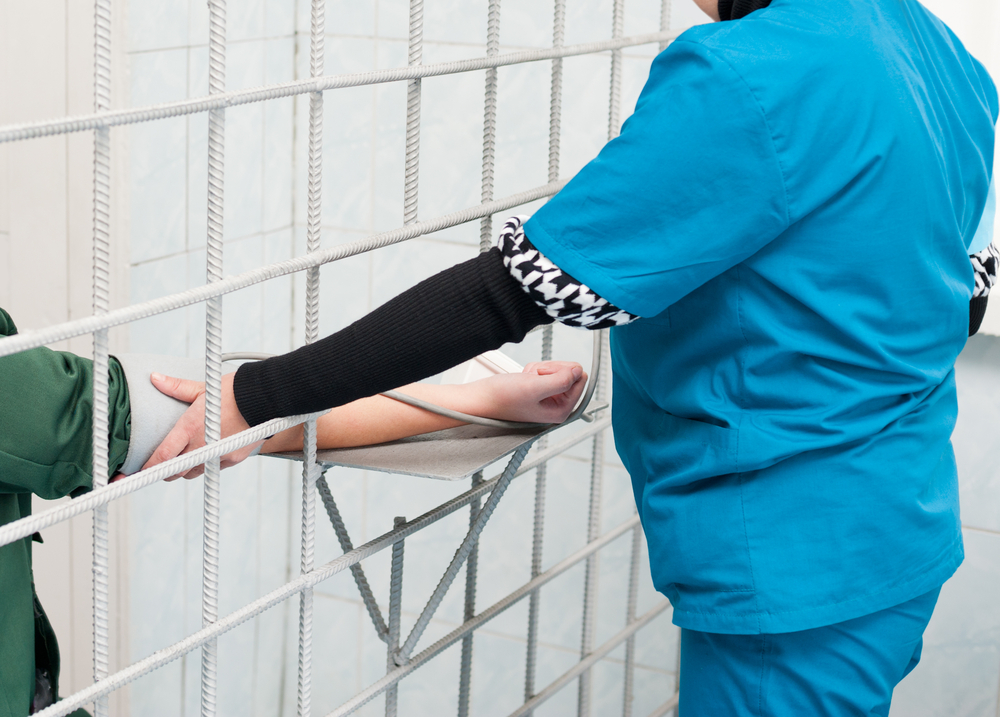It’s hoped a new program giving prison nurses psychosocial training will improve the mental health of prisoners, who are still exempt from Medicare and PBS subsidies, prompting calls for changes.
Prison nurses are receiving specialist psychosocial training, under a new program aimed at improving the mental health of people in custody in regional South Australia.
The trial by the University of South Australia (UniSA) aims to give frontline nurses skills to deliver evidence-based mental health treatments in the correctional health system.
The trial is being conducted across four sites at Port Lincoln, Port Augusta, Mobilong (near Murray Bridge) and Cadell.
The study highlights the need to address the mental health needs of people in custody, especially those in rural areas, UniSA’s Associate Professor Martin Jones said.
“People in custody face extremely high rates of depressive disorders,” Associate Professor Jones said.
“Yet, too often, people in custody encounter significant barriers to accessing psychological treatments such as cognitive behavioural therapy or specialist mental health workers.”
The nurses will complete the Professional Certificate in Behavioural Activation for Depression.
Behavioural activation refers to a psychosocial intervention that focuses on supporting people living with depression to engage in meaningful activities to improve mood and motivation.
“We’re hoping that this opportunity could present custodial nurses with a convenient and accessible means to enhance their skills and contribute to a more responsive local care community,” Associate Professor Jones said.
“Beyond this, the program has the potential to extend across Australia.”

Not covered by Medicare
The health outcomes of prisoners are often poorer than the general population; a situation exacerbated by their exclusion from Medicare and Pharmaceutical Benefits Scheme (PBS) subsidies.
In a submission to the Pharmaceutical Benefits Advisory Committee’s March 2024 meeting, the Australian Medical Association (AMA) raised concerns about inequitable health care for Australians in custody.
“It is appalling and an affront to Australia’s human rights status that prisoners in this country aren’t allowed to receive the same quality of health care as the wider community,” AMA President, Professor Stephen Robson, said.
“Because of legislation dating back to 1973, people in custodial settings are not able to receive treatment under the country’s universal health insurance scheme, Medicare, nor are they allowed to receive medicines subsidised by the PBS.”
Prisoners and young people in detention are excluded from receiving Medicare and PBS subsidies under section 19(2) of the Commonwealth Health Insurance Act 1973. This exclusion was designed to avoid duplication of services – with state and territory governments funding prison-based health services – but experts say it is a source of inequity between prisoners and the general population.
A “step in the right direction”
One nurse taking part in the program, Jolene Murray, based at Mobilong Prison, said the UniSA course was filling a much-needed gap in the system.
“This program will be extremely beneficial for … clinicians in providing a psychosocial treatment for depression, especially those clinicians working on mental health portfolios,” Murray says.
“I am very excited to be a part of the behavioural activation clinical trial and I believe that addressing high rates of depression within the prison population through psychosocial treatment, will not only have a positive effect on consumers but also reduce re-offending.”
Custodial nurse at Port Augusta Prison, Janice Scott, said the program presented a new approach to patient-centred care in prisons.
“This course has been a great resource for people in custody who have depression,” Scott said.
“Already, it has helped many of our patients to overcome their depression and gain employment in the prison. But importantly, it has also helped them to communicate with their family on the outside.”
Hepatitis C remains a concern
Chris Wallis, a nurse practitioner in Prison Health Services at West Moreton Hospital and Health Service in Queensland, recently discussed the difficulties of delivering health care to incarcerated individuals, in the context of hepatitis C treatment.
“I often lament with my fellow colleagues the frustrations of trying to deliver health care in a custodial setting,” Mr Wallis wrote in InSight+.
“[However] there has also been a great deal of progress made in the steady march towards eliminating hepatitis C as a public health threat in Australia by the year 2030, particularly within the prison environment.”
He has argued for the upscaling of testing and treatment for hepatitis C virus infection among Australia’s prisoner population to help achieve the goal of elimination by 2030.
Hepatitis C prevalence remains high among incarcerated individuals due to large numbers of prisoners with a history of illicit substance use, along with the common practices of needle sharing and amateur tattooing while in custody (here).
Subscribe to the free InSight+ weekly newsletter here. It is available to all readers, not just registered medical practitioners.

 more_vert
more_vert